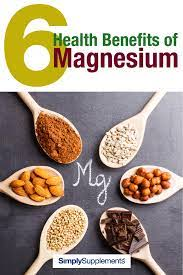
- In an eight-week study, a vegan diet showed signs of slowing biological aging compared to an omnivorous diet.
- The Stanford Twin Study recruited identical twins who were subsequently put on opposing diets to study the effects.
- The findings appear consistent with other literature about the anti-aging and protective properties of a vegan diet.
A vegan diet can slow signs of aging at a molecular level in as little as eight weeks, according to new research.
The findings, published July 28 in the journal BMC Medicine, are pulled from the Stanford Twin Study, also the subject of the new Netflix documentary series “You Are What You Eat: A Twin Experiment.”
Stanford’s experiment asks the question: what happens when pairs of identical twins eat two different, although still healthy, diets?
The eight-week study involved 22 pairs of twins, half of whom (one from each pair) were randomized to a “healthy vegan” diet, while the other half consumed a “healthy omnivorous” diet.
Initial study results, published in November 2023, showed similar results supporting the short-term plant-based diet protocol.
Participants who consumed a vegan diet ate fewer calories, lost more weight, and improved LDL (bad) cholesterol and fasting insulin levels than their omnivorous diet counterparts.
Does a vegan diet slow down aging?
The research published this week indicates that in addition to these benefits, consuming a vegan diet also improved epigenetic markers associated with aging.
Think of these markers like clocks hidden in your genes: you might be forty years old (your chronological age), but your biological age could be different based on lifestyle factors like diet and exercise influence.
There is no single unified measure for reading biological age through epigenetics. Instead, the research team employed multiple tests to read these “clocks.”
Scientists can observe patterns in DNA methylation, a natural process that affects gene expression, to estimate biological age using various tests, including GrimAge and DunedinPACE.
“We didn’t really expect much from these clocks, which was the surprising bit because out of all the clocks that we studied, there were about 12 that showed consistent decreases in their epigenetic age,” first study author Varun B. Dwaraka, PhD, head of bioinformatics and principal investigator at TruDiagnostic, told Healthline.
“There was a significant decrease in the vegans, but there was no change in the omnivores,” he said.
Vegan vs. omnivore: Which diet is healthier?
The study was conducted in two phases.
During the first four weeks, participants were provided meals at no cost by the nationwide meal delivery company Trifecta Nutrition (the company was not involved in sponsoring the study). In the second half, participants were responsible for cooking their own meals.
The key for both the vegan and omnivore meal plans is that they both had to be healthy.
“The terms ‘vegan’ and ‘omnivore’ are very broad, and it is quite possible to make poor food choices that would be consistent with these diet patterns,” senior study author Christopher Gardner, PhD, a professor of medicine and a nutrition scientist at Stanford Medicine, told Healthline.
“For example, soda, [some] French fries, and Oreo cookies are all technically vegan,” Gardner noted.
Both groups were instructed to eat diets high in vegetables and fiber while minimizing refined grains and sugars. Researchers utilized the Healthy Eating Index, a validated metric that uses a scoring system to determine the overall quality of an individual’s diet, to gauge the quality of participants’ meals.
By recruiting twins to the study, researchers were able to eliminate one of the largest confounding factors when studying epigenetics: DNA.
“This was the perfect kind of design because essentially what you’re doing is looking at two genetically identical individuals and then allowing them to have two different diet types and then seeing what the response would be,” Dwaraka said.
“We’ve known in the past that different diets can have different impacts on epigenetic age. But in those interventional trials, it wasn’t really done in a way that controlled for those genetic variances,” he noted.
How do epigenetics affect aging?
The findings go beyond improvements to body composition and cholesterol, demonstrating the role of diet in aging itself.
Epigenetics refers to the way that behavior and environment affect genetics. These changes are not permanent, nor do they directly affect your DNA; instead, like a computer, they affect how the “code” of your DNA is read.
“You can actually read the DNA in a way that formulates different biological processes to occur. So, you can maybe relate this to the idea of having a computer that has the same exact hardware, but based on the software that you’re downloading, you can activate different processes,” Dwaraka explained.
Epigenetic changes can alter gene expression, making you more or less susceptible to various forms of disease.
So, while you can’t change your DNA itself, you can affect your epigenetics (for better or worse) through day-to-day activities.
“Nutrition and exercise are among the most well‐known environmental epigenetic factors influencing the proper developmental and functional lifestyle, with potential beneficial or detrimental effects on health status,” Myron Szewczuk, PhD, a biomedical and molecular sciences professor at Queen’s University in Ontario, Canada, told Healthline. Szewczuk was not affiliated with the research.
Chronological age changes at the same rate as everyone. Still, your biological age, which refers to the health and functioning of your body on a cellular level, is dynamic and modifiable.
The distinction between chronological and biological age has become an important area of study as the human life span has increased and science has made continual breakthroughs in understanding the human genome.
Long-term effects of a vegan diet on aging are not known
The study, though compelling, may not offer much in the way of practical recommendations for individuals interested in improving their diet.
The study authors say their findings are limited to the eight-week scope and can’t speak to the longer-term effects of either diet, though they do eventually hope to hold a longer trial.
“We cannot say anything beyond just eight weeks because, for example, one of the things that we do know is that a vegan diet without vitamin B12 supplementation can actually have disastrous effects on health,” Dwaraka said.
Despite this caveat, vegan and plant-based diets have been associated with numerous health benefits — but so have omnivorous diets like the Mediterranean diet.
“This is very consistent with the current knowledge that a plant-based diet is associated with benefits for biological aging and other health conditions, such as overall cardiac health,” Alyssa Kwan, a clinical dietitian in cardiology at Stanford Medicine who wasn’t affiliated with the research, told Healthline.
“I think this study, though short term, helps to support evidence for a plant-based diet.”
The takeaway
In an eight-week trial involving identical twins, those who followed a vegan diet showed signs of slowing down the aging process at a molecular level.
Lifestyle choices including diet and exercise are known epigenetic modifiers, which can make you more or less susceptible to disease.
Although the findings are limited to just eight weeks, other experts say that the study is consistent with other literature on the health benefits of vegan and plant-based diets.

